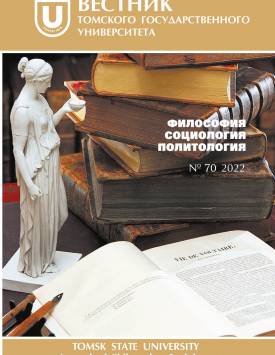Noncognitivism and moral claims
One of the problems that noncognitivism faces as a metaethical position is that, if its premises are true, then any inference that concludes to a fact based on premises that include a moral claim is an inference from the speaker’s non-cognitive state. In this case, the form of such an inference turns out to be similar to the so-called wishful thinking, which is unacceptable. A dilemma arises, where the first option is rejection of moral arguments in favor of facts, and the second option is rejection of noncognitivism. Is treating moral reasoning as wishful thinking evidence against noncognitivism? In the article, we consider the grounds for positive and negative answers to this question. We also put forward a new argument against noncognitivism, connected with the problem of explication of the foundations of a moral claim.
Keywords
noncognitivism, metaethics, moral reasoning, state of affairsAuthors
| Name | Organization | |
| Mikirtumov Ivan B. | St. Petersburg State University | imikirtumov@gmail.com |
| Frolov Konstantin G. | St. Petersburg State University; National Research University Higher School of Economics | kgfrolov@hse.ru |
References

Noncognitivism and moral claims | Tomsk State University Journal of Philosophy, Sociology and Political Science. 2022. № 70. DOI: 10.17223/1998863X/70/17
